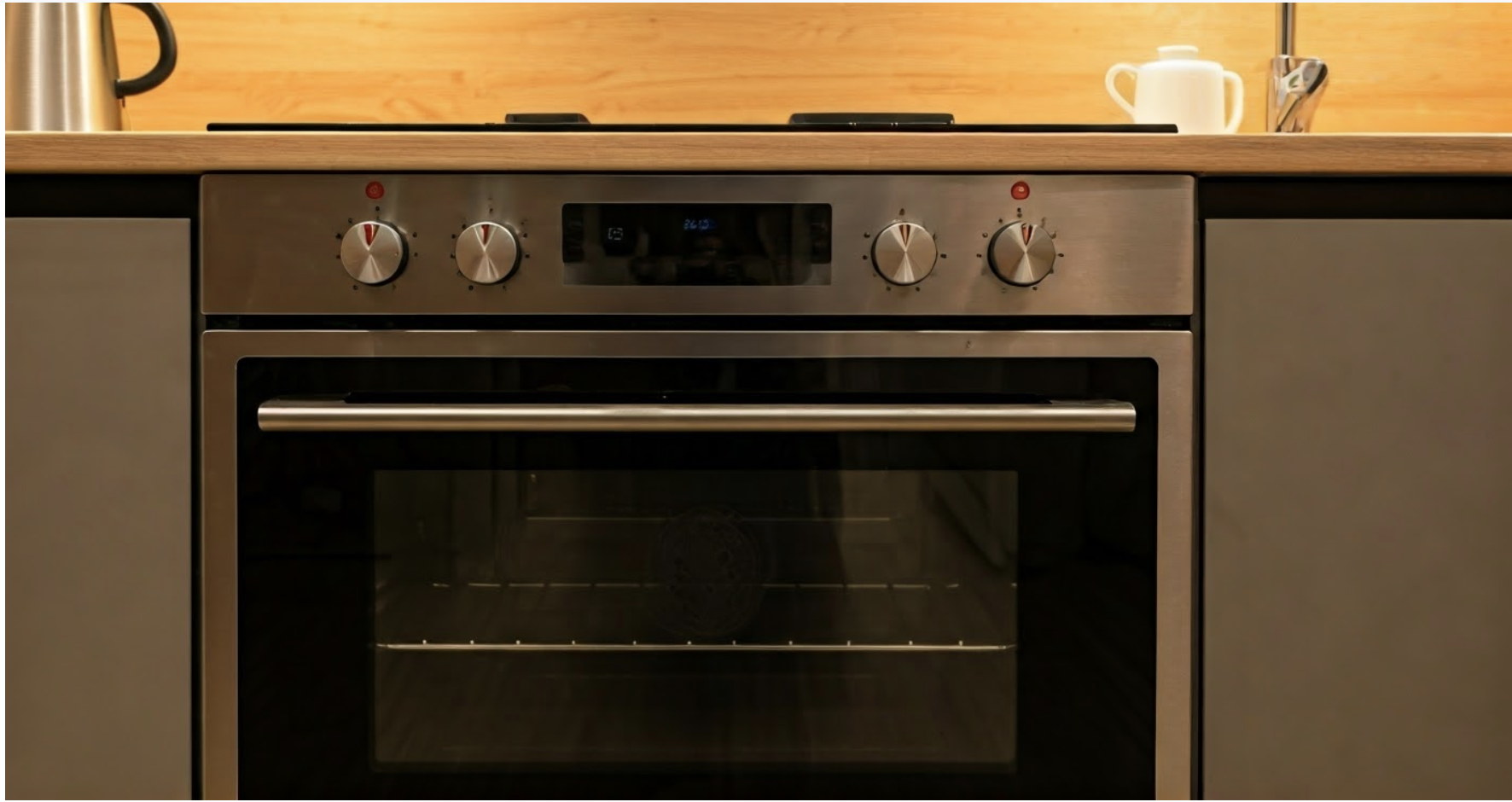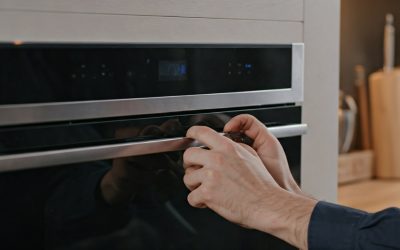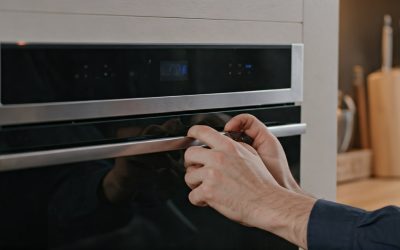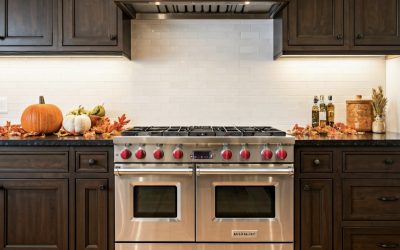Have you ever thought about why your oven makes clicking sounds while running? This can happen with any type, like a wall oven, gas oven, or electric model. Sometimes the noise is nothing to worry about, but other times it means there could be a problem. Newer ovens with more features might make these unexpected noises, which can make you feel anxious. This guide will help you understand what these sounds mean. You will learn the difference between normal sounds and those that could need repairs. Let’s get started to keep your Viking oven (or a different brand) working well.
Understanding Oven Clicking Sounds
Oven clicking sounds can come from normal use or technical problems. For example, gas ovens often click when they ignite. Electric ovens may click when relays change electric currents. These noises do not always mean there is a problem. Many of them are just part of how the oven works. But if you hear loud or repeated clicking, it might mean there is an issue needing professional help.
The clicking noise can be a warning sign of appliance wear or malfunction. Ignition switches, fans, and electrical parts can cause these unusual sounds. It is important to know when a clicking noise is harmless or a cause for concern. This knowledge helps you make smart choices about repair or maintenance. With this information, you can tackle appliance issues with confidence and skill.
Common Reasons for Clicking Noises
Modern ovens can be complicated, so clicking noises can come from different places. Knowing these causes can help you avoid costly mistakes and frustrations.
- Heating Element Cycling: Electric ovens have relays that help cycle the heating elements to control temperature. If you hear frequent clicking, it might mean worn-out relays are having trouble maintaining electric currents.
- Ignition Issues in Gas Ovens: Clicking sounds during ignition are normal. However, if the clicking continues, it can mean there are problems like blocked gas lines or burner caps that are not aligned correctly.
- Component Wear: Over time, parts of appliances, like fan motors, can wear down. This wear can cause friction, leading to clicks when metal parts move against each other.
These issues can be different based on whether you have a wall oven, gas oven, or electric oven. Knowing the exact reason can help you fix your oven well.
Beginner’s Guide to Troubleshooting Oven Clicking
Troubleshooting clicking noises is easy and doesn’t need special skills.
- First, listen for where the sound comes from and how often it clicks. Is it near the ignition system, gas line, or heating element? This can help you figure out what’s wrong.
- Next, watch how your oven works. Do you see sparks that don’t ignite gas? Or is the heat level inconsistent? These signs can help you with your search for the problem. With the right tools and advice, you can often fix most issues on your own. But sometimes, it’s good to know when to call for professional help.
Step-by-step Guide to Diagnosing the Issue
Diagnosing clicking noises in ovens requires some steps. First, identify the possible causes based on your oven type.
- For Gas Ovens: Check the ignition system. Does the clicking sound keep happening after you turn the switch on and off a few times? If yes, look at the spark connections for any damage or dirt that may be blocking ignition.
- For Electric Ovens: Find the relay board. If the clicking affects heating, use a multimeter to test the board’s continuity. Often, old boards do not control current well.
- General Diagnosis: Look for any visible damage to fans, parts, or gas pipes. Simple actions like cleaning dirt or tightening loose connections can usually stop the clicking sound. If the issue is still there, check specific components for a closer look.
Step 1: Inspect the Ignition System
When you hear a clicking sound in gas ovens, check the ignition system first. A working ignition system helps the gas ignite right, which stops those annoying clicks.
Start by looking at the spark igniter and wires for any damage. Worn wires or loose connections can make the igniter get stuck in a loop. Clean the connections to make sure they work well.
Next, try to ignite the oven manually. If the spark doesn’t light the gas, use a toothpick to clean the gas cap and area around it. If the clicking sound continues after you check everything, there may be bigger problems that need a professional to look at.
Step 2: Check the Gas Line Connections
Gas ovens need the right fuel flow to heat properly. A clicking sound might mean there are blocked or irregular gas connections.
First, find the back opening of the burner cap that sends gas to the igniter. If this opening is blocked, air can disturb ignition and cause clicking sounds. Use a toothpick or needle to clear the opening.
Make sure the burner caps are properly centered. If the caps are misaligned, they damage efficiency and lead to ongoing ignition attempts. If fixing the alignment does not work, check the gas pipes for leaks or leftover air that can block the flow. Regular maintenance helps prevent these problems.
Step 3: Test the Electrical Components
Electric ovens can make clicking sounds because of problems with parts like heating elements or relay boards. To solve these issues, you need to test things carefully.
First, turn off the power at the main electrical supply. Find the relay board, which is usually located behind the oven’s back panel. Use a multimeter to check if it’s working. If the test shows continuity, the board is fine. If not, you need to replace it right away.
Next, check the heating elements for any visible damage, like cracks. Test their continuity in the same way to avoid mistakes. These tests help you find problems and figure out what to do about the clicking sounds from the electric ovens.
Contact Viking Professional Service for Professional Repairs
When the steps you take to fix oven clicking noises don’t work, it’s important to get professional help. Viking Professional Service knows how to fix all types of appliances. This includes wall ovens, gas ovens, and electric ovens.
Our workers use modern tools to find problems accurately. They can replace ignition switches and check electrical issues to ensure the repairs are done right. We focus on safety and quality in every service we provide.
Don’t leave your appliance’s performance to luck. Reach out to Viking Professional Service to stop the clicking sounds and cook without worries again. Call or text us today for reliable help.
Conclusion
In conclusion, knowing why your oven makes clicking sounds while running can help you save time and money. By finding out common problems like a bad ignition system or gas line issues, you can fix things on your own before calling someone else. Regular checks are important to keep your oven working well and quietly. If you want to learn more about taking care of home appliances, check out our other blog post about Finding If It is Bad If Your Oven Smokes for more tips and insights.
Frequently Asked Questions
Is it safe to use the oven if it is making clicking noises?
Using an oven that makes clicking sounds can be both normal and concerning. If the clicking happens because of the oven’s regular operation or harmless parts, it is safe to use. But if the clicking noise keeps going in gas ovens, electric ovens, or wall ovens, this may mean there are problems with the appliance. It’s important to deal with this issue quickly to keep things safe.
How often should I service my oven to prevent unusual noises?
Taking care of a gas oven or electric oven every year, or following the instructions in the appliance manual, can stop clicking noises. Regular maintenance is important. Cleaning the ignition systems and checking the heating parts will help your oven work well and last longer.
Can weather changes affect how my oven operates?
Big changes in the weather can affect gas ovens, electric ovens, and wall ovens. High humidity can block ignition lines. Cold temperatures can also make electrical circuits weaker, which may cause a clicking sound. Taking good care of your appliance can help reduce these problems.





